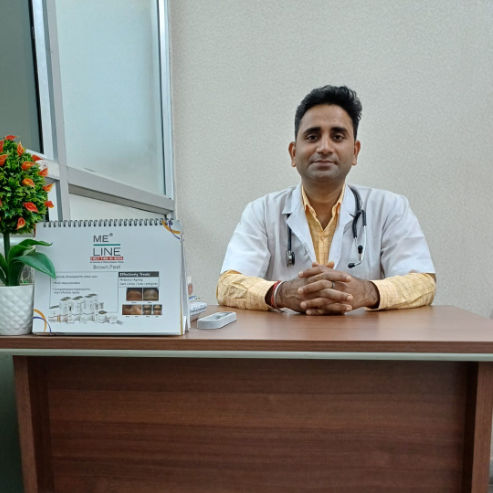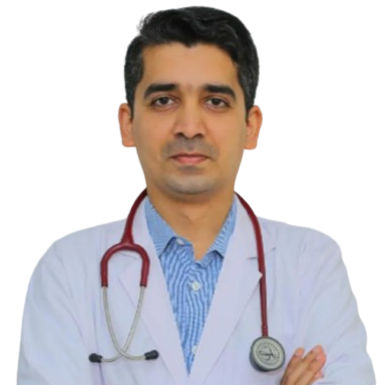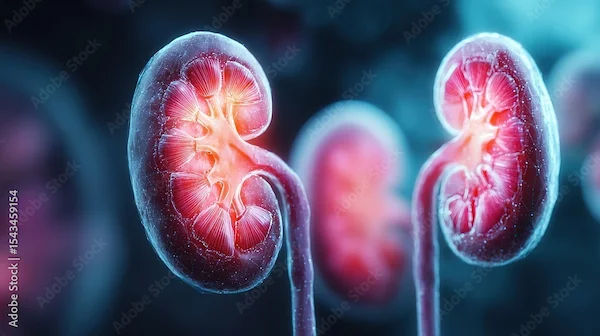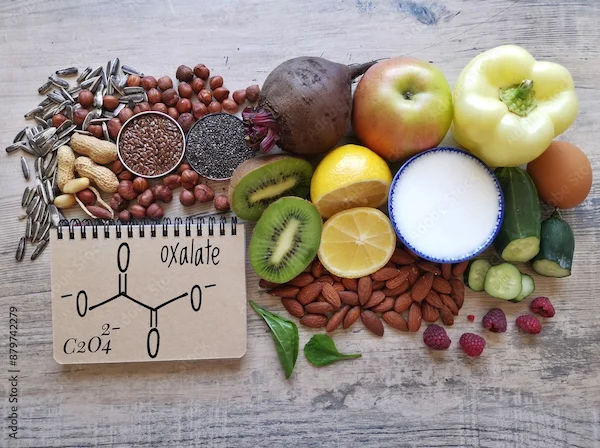Can Kidney Transplant Cure Ckd
Can a kidney transplant cure CKD? Learn why it's the best treatment for end-stage kidney disease, offering a better life than dialysis, but understand it's not a "cure" and requires lifelong care.

Written by
Last updated on 17th Jul, 2025
_6.webp)
Introduction
Chronic Kidney Disease (CKD) is a serious condition where the kidneys gradually lose their ability to filter waste and excess fluids from the blood. If left untreated, CKD can progress to end stage renal disease (ESRD), requiring dialysis or a kidney transplant to survive.
One common question patients ask is: Can a kidney transplant cure CKD? The answer is both hopeful and complex. Let’s break it down in simple terms.
Understanding CKD and Kidney Transplant
What is CKD?
CKD is a long-term condition where kidney function declines over time. It is categorized into five stages, with stage 5 being kidney failure (ESRD). At this stage, the kidneys can no longer function well enough to keep a person healthy.
How Does a Kidney Transplant Help?
A kidney transplant involves replacing a failed kidney with a healthy one from a donor (living or deceased). The new kidney takes over the filtering function, allowing the body to remove waste and maintain fluid balance.
Does a Kidney Transplant Cure CKD?
While a kidney transplant is the closest thing to a "cure" for ESRD, it does not completely eliminate CKD. Here’s why:
The Underlying Cause Remains – If CKD was caused by conditions like diabetes or high blood pressure, these issues still need management to protect the new kidney.
Risk of Rejection – The body may see the new kidney as foreign and attack it. Lifelong immunosuppressant medications are needed to prevent rejection.
Possible Recurrence – Some diseases (like certain types of kidney inflammation) can affect the transplanted kidney over time.
However, a successful transplant can:
Restore normal kidney function
Free patients from dialysis
Improve quality of life significantly
Who is Eligible for a Kidney Transplant?
Not everyone with CKD can get a transplant. Doctors consider:
Overall health (heart, lungs, and other organs must be strong enough for surgery)
Age (though older adults can still qualify if healthy)
Absence of active infections or cancer
Willingness to take lifelong medications
Consult Top Nephrologists
Life After a Kidney Transplant
A transplant improves life, but it requires ongoing care:
1. Medications
Immunosuppressants – To prevent rejection (taken for life).
Other medicines – For blood pressure, infections, or other complications.
2. Regular Checkups
Frequent doctor visits and lab tests ensure the kidney is functioning well.
3. Healthy Lifestyle Changes
Diet – Balanced meals with controlled salt, sugar, and protein.
Exercise – Moderate activity helps maintain overall health.
Avoiding Infections – Immunosuppressants weaken immunity, so hygiene and vaccinations are crucial.
Alternative: Dialysis
If a transplant isn’t an option, dialysis (hemodialysis or peritoneal dialysis) helps filter blood artificially. While it sustains life, it doesn’t restore full kidney function like a transplant.
When Should You Consider a Transplant?
One should consider a transplant when:
If you have ESRD and are on dialysis.
If your doctor confirms you’re a good candidate.
If you have a willing living donor or are on a waiting list for a deceased donor.
Final Thoughts
A kidney transplant is the best treatment for ESRD, offering freedom from dialysis and a near-normal life. However, it’s not a complete cure—lifelong care is essential.
If you or a loved one has CKD, consult a nephrologist to explore options. Apollo 24|7 offers expert consultations and transplant evaluations—book an appointment today to discuss the best path for your kidney health.
Stay hopeful, stay informed, and take proactive steps toward better kidney care!
Consult Top Nephrologist
Consult Top Nephrologists

Dr. Hareesha Babu K
Nephrologist
25 Years • MBBS, MD (General Medicine), DM (Nephrology),FASN, FRCP(Glasg), FRCP (Edin)
Bangalore
Kidney & Hypertension Care, Bangalore

Dr. S Bipin Kumar
Nephrologist
13 Years • MBBS, MD General Medicine, DM, Nephrology
Rajamahendravaram
SG KIDNEY CARE, Rajamahendravaram

Dr. Luvdeep Dogra
Nephrologist
10 Years • MBBS, MD, DM (NEPHORLOGY)
Jaipur
Dr Dogras Health Clinic, Jaipur

Dr. Govardhan Gupta
Nephrologist
15 Years • MBBS, DNB General Medicine, DrNB Nephrology
Mumbai
Oscar Superspeciality Hospital, Mumbai

Dr. Anantha Rao
Nephrologist
7 Years • MBBS, DNB (General Medicine), DNB (Nephrology)
Kurnool
Aakash hospital and KIMS hospital, Kurnool
Consult Top Nephrologist

Dr. Hareesha Babu K
Nephrologist
25 Years • MBBS, MD (General Medicine), DM (Nephrology),FASN, FRCP(Glasg), FRCP (Edin)
Bangalore
Kidney & Hypertension Care, Bangalore

Dr. S Bipin Kumar
Nephrologist
13 Years • MBBS, MD General Medicine, DM, Nephrology
Rajamahendravaram
SG KIDNEY CARE, Rajamahendravaram

Dr. Luvdeep Dogra
Nephrologist
10 Years • MBBS, MD, DM (NEPHORLOGY)
Jaipur
Dr Dogras Health Clinic, Jaipur

Dr. Govardhan Gupta
Nephrologist
15 Years • MBBS, DNB General Medicine, DrNB Nephrology
Mumbai
Oscar Superspeciality Hospital, Mumbai

Dr. Anantha Rao
Nephrologist
7 Years • MBBS, DNB (General Medicine), DNB (Nephrology)
Kurnool
Aakash hospital and KIMS hospital, Kurnool
_12.webp)

_4.webp)
_13.webp)
